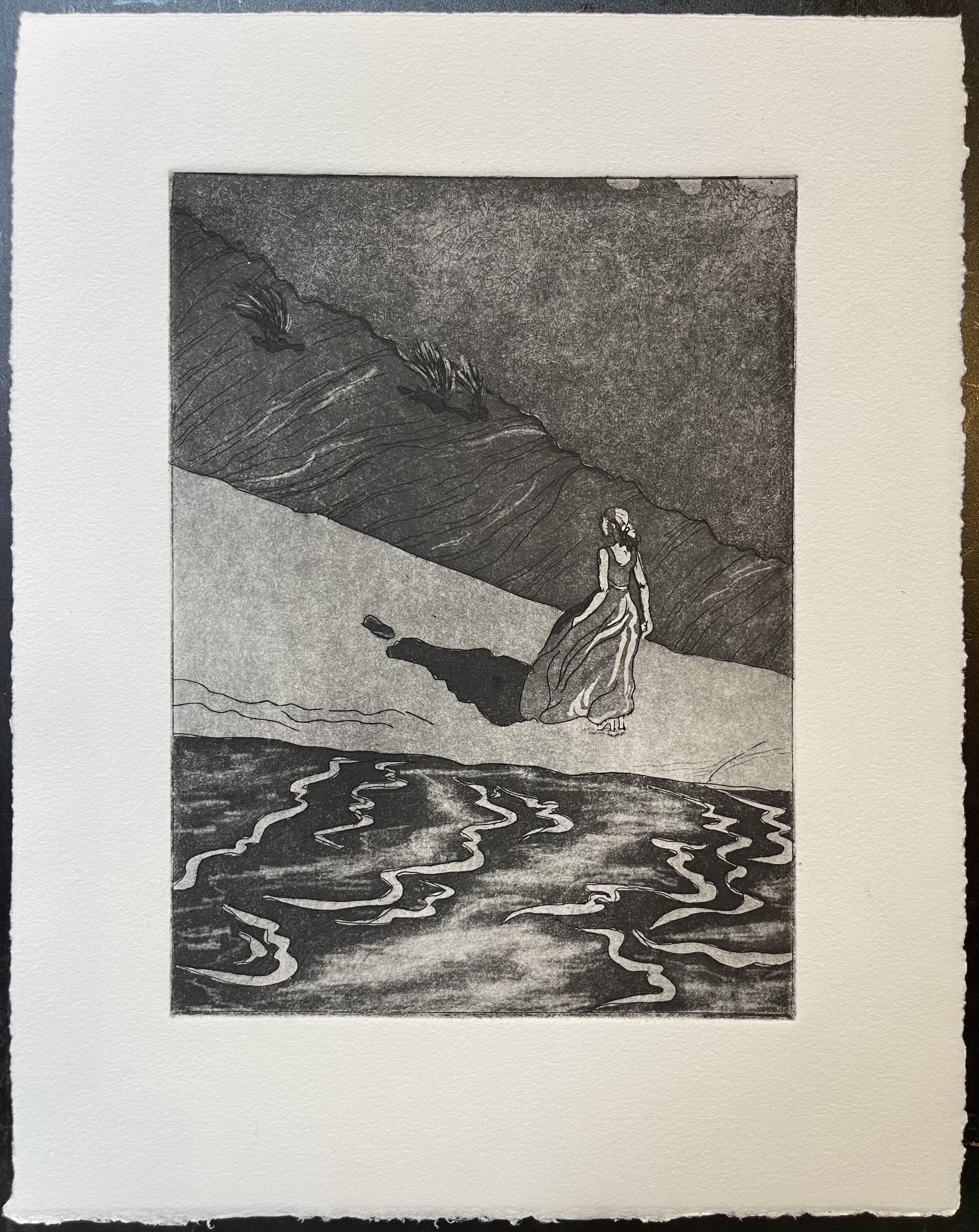I have been burnishing an etching plate and perfection is eluding me. At times I feel that even basic competence is eluding me. The plate is a piece of zinc on which I have created a toned image, and the object of burnishing is to create lighter areas by rubbing the plate with a metal tool called, aptly, a burnisher. The burnisher, as a Japanese printmaking website describes it, is “like the strip of cartilage in a squid with an oval cross section.” (MAU Art and Design) So poetic! Working with a burnishing tool feels like trying to sign your name on a line using the back of a spoon. Unless you have X-ray vision, you can’t tell exactly where the back of the spoon is meeting the paper. Getting a feel for where the mark will occur takes practice, patience, and frequent testing, done by smudging ink across the burnished area. If you don’t work slowly, and check frequently, you can over-burnish, and erase the tone entirely.
Part of the Flow: zinc plate with etched lines and aquatint tones
Burnishing makes me think about mastery. It involves learning a new skill, and taking the time required rather than rushing, and finding some inner accommodation with disappointing results despite best efforts. Etching, in general, can be a perfectionist’s art form. I am gobsmacked by detailed etchings that must have taken untold hours of work. Part of me wants to work hard and long enough to attain something approaching mastery at this process. And part of me wants to hold onto the spontaneous aspect of art-making. The spontaneous gesture can be the most beautiful. Yet a spontaneous gesture, such as a gorgeous brushstroke, may be possible largely because of the hours spent attaining the mastery that preceded it. Take one of my favorite painters, John Singer Sargent. Look at the just-right brushstrokes in his famous piece The Daughters of Edward Darley Boit – the girls’ eyes, the doll, their pinafores, the vases! https://en.wikipedia.org/wiki/The_Daughters_of_Edward_Darley_Boit#/media/File:The_Daughters_of_Edward_Darley_Boit,_John_Singer_Sargent,_1882_(unfree_frame_crop).jpg That spontaneity must have been possible because he painted all the time. All. The. Time.
Test print of Part of the Flow. I overburnished the water. But, a plate can always be reworked and improved.
Mastery also has to compete with everyday obligations, and with temptations that divert your attention because they’re pleasurable and they’re passive, like binge-watching a good streamer, or getting absorbed in a novel. If you have a lot of interests, and hope to attain mastery in all of them, it can get frustrating. It can take the fun out of trying things. It can keep you from the spontaneous yes. I guess the trick is knowing when to practice burnishing and when to, say play beach volleyball. Our family did that over Christmas, and it was a blast. I hadn’t touched a volleyball in years, and I’ll never attain mastery at the sport. I might never even get good at it. But I want to play more of it. And I’ll keep etching.

